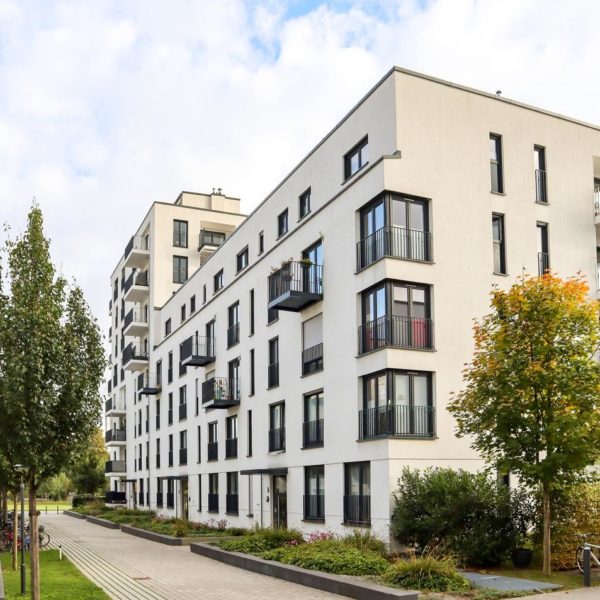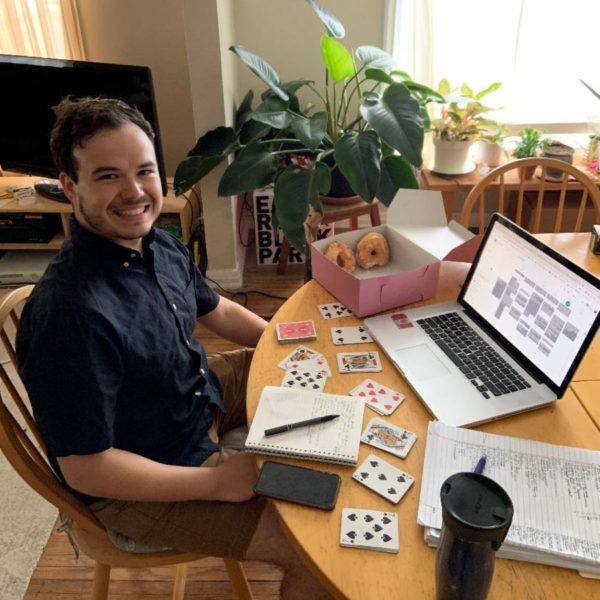Partnering to Improve Health by Changing the Food System
G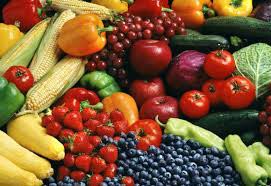 ood food makes for good communities. In urban areas and rural towns around the country, local and regional food systems have become an increasingly important factor for the smart growth movement as communities plan for a healthy future where all residents have convenient access to nutritious and affordable food.
ood food makes for good communities. In urban areas and rural towns around the country, local and regional food systems have become an increasingly important factor for the smart growth movement as communities plan for a healthy future where all residents have convenient access to nutritious and affordable food.
Ensuring more equitable access to healthy food requires partnerships across all the key players in our local and regional food systems –producers, processers, transporters and consumers of our food.
The Local Government Commission worked with Michigan State University and Denver-local Wendy Peters Moschetti to organize an exciting half-day pre-conference featuring innovative models for creating healthy, equitable food systems.
Food System Infrastructure: Brick-and-Mortar Examples
 The Common Market in Philadelphia and the GrowHaus in Denver offer two successful “food hub” models that have increased access to healthy, affordable foods. In describing local government’s role in facilitating these innovative projects, GrowHuas co-founder Coby Gould explained how “the City has allowed us to do weird and innovative things [like] aquaponics – aquaculture (growing fish) and hydroponics (growing plants) in a recirculating system. There is excitement in Denver about being at the cutting edge of issues, such as urban agriculture and community development.”
The Common Market in Philadelphia and the GrowHaus in Denver offer two successful “food hub” models that have increased access to healthy, affordable foods. In describing local government’s role in facilitating these innovative projects, GrowHuas co-founder Coby Gould explained how “the City has allowed us to do weird and innovative things [like] aquaponics – aquaculture (growing fish) and hydroponics (growing plants) in a recirculating system. There is excitement in Denver about being at the cutting edge of issues, such as urban agriculture and community development.”
Good Food Purchasing
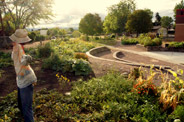 Creating a Good Food Purchasing Pledge to harnesses the purchasing power of major institutions was one key accomplishment of LA’s Food Policy Task, Force according to presenter Paula Daniels, Senior Advisor, Food Policy and Special Project in Water, Office of the Mayor of Los Angeles. The City of Los Angeles adopted the Pledge in October 2012, and was soon joined by the Los Angeles Unified School District, which has a $150 million budget for food and food supplies. Through the district’s commitment to purchasing more local foods, $12 million has been redirected back into the local economy.
Creating a Good Food Purchasing Pledge to harnesses the purchasing power of major institutions was one key accomplishment of LA’s Food Policy Task, Force according to presenter Paula Daniels, Senior Advisor, Food Policy and Special Project in Water, Office of the Mayor of Los Angeles. The City of Los Angeles adopted the Pledge in October 2012, and was soon joined by the Los Angeles Unified School District, which has a $150 million budget for food and food supplies. Through the district’s commitment to purchasing more local foods, $12 million has been redirected back into the local economy.
Madison’s Meet and Eat
 Mayor Paul Soglin Madison, WI, gave witness to the transformative power of food to build community and provide economic opportunity. Madison’s Meet and Eat, inspired by Berkeley’s Off the Grid, organizes a food cart extravaganza held in vacant lots in low-income neighborhoods with limited food options.
Mayor Paul Soglin Madison, WI, gave witness to the transformative power of food to build community and provide economic opportunity. Madison’s Meet and Eat, inspired by Berkeley’s Off the Grid, organizes a food cart extravaganza held in vacant lots in low-income neighborhoods with limited food options.
The event brings people out from their homes for good, healthy, affordable food and provides a chance for residents to meet and mingle with their neighbors.
Soglin is also working on a public market defined as a place that focuses on people and food and less on aesthetics and touristic charm. He chairs the U.S. Conference of Mayors Task Force on Food Policy, established as a vehicle to recognize the lead role mayors are taking to reduce obesity, increase access to healthy, affordable food, and promote food-related economic development.
New Partners to Invest in Fairer Food Systems
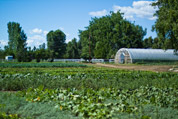 Finding the money to support food-related efforts at the local and regional level was also a key theme of the conference conversation. The USDA’s “Know Your Farmer, Know Your Food” Portal helps those interested in working on local and regional food systems find funding, inspiration and tools, including an interactive map to learn about projects in your own backyard or similar projects elsewhere. It provides information for communities seeking to launch healthy food retail projects. One funding source is Healthy Food Financing Initiatives. The President’s FY 2013 budget requests $285 million for these initiatives. In California, the public-private California FreshWorks loan fund has raised $272 million to invest in bringing grocery stores and other forms of healthy food retailers to underserved communities.
Finding the money to support food-related efforts at the local and regional level was also a key theme of the conference conversation. The USDA’s “Know Your Farmer, Know Your Food” Portal helps those interested in working on local and regional food systems find funding, inspiration and tools, including an interactive map to learn about projects in your own backyard or similar projects elsewhere. It provides information for communities seeking to launch healthy food retail projects. One funding source is Healthy Food Financing Initiatives. The President’s FY 2013 budget requests $285 million for these initiatives. In California, the public-private California FreshWorks loan fund has raised $272 million to invest in bringing grocery stores and other forms of healthy food retailers to underserved communities.
Learn more about the conference’s food systems workshop.
Local Government Commission Newsletters
Livable Places Update
CURRENTS Newsletter
CivicSpark™ Newsletter
LGC Newsletters
Keep up to date with LGC’s newsletters!
Livable Places Update – April
April’s article: Microtransit: Right-Sizing Transportation to Improve Community Mobility
Currents: Spring 2019
Currents provides readers with current information on energy issues affecting local governments in California.
CivicSpark Newsletter – March
This monthly CivicSpark newsletter features updates on CivicSpark projects and highlights.


